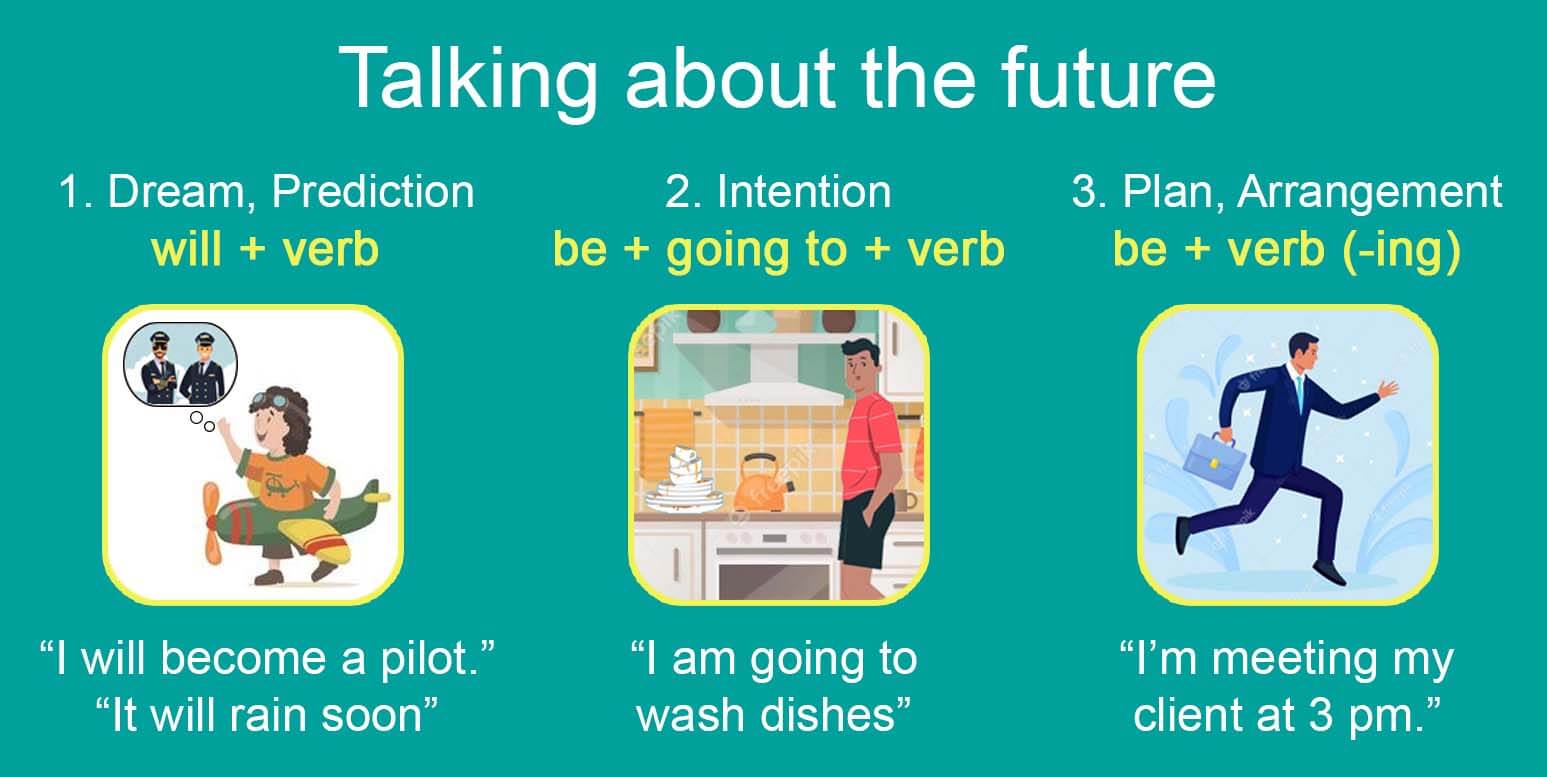Simple Future Tense with "Will" and "Be going to"
- "Will" and "be going to" are both used to talk about the future, but they have different uses.
- "Will" is used for decisions made at the moment of speaking and predictions without evidence.
- "Be going to" is used for plans and intentions, and predictions with present evidence.
- The Present Continuous tense is also used to talk about future plans or arrangements.
In this lesson, we'll explore the simple future tense in English, focusing on the use of "will," "be going to," and the present continuous tense to talk about your future plans. Understanding the differences between these can help you talk about future events more accurately.

Using "Will" for Future
"Will" is used when we decide to do something at the moment of speaking or when we make predictions without any present evidence. The structure for using "will" is: Subject + will + base form of the verb.
Examples:
-
I will call you later.
Decision made at the moment of speaking.
-
It will rain tomorrow.
Prediction without present evidence.
Using "Be Going To" for Future
"Be going to" is used for talking about plans or intentions and for making predictions about the future when there is present evidence. The structure is: Subject + be (am/is/are) + going to + base form of the verb.
Examples:
-
I am going to visit my grandparents next weekend.
Plan or intention for the future.
-
Look at those clouds! It's going to rain.
Prediction with present evidence.
Using Present Continuous for Future Plans
The Present Continuous tense can also express future plans or arrangements that are already decided and confirmed. The structure is: Subject + be (am/is/are) + verb-ing.
Examples:
-
I am meeting my friend tomorrow.
Confirmed arrangement for the future.
-
We are having a party next Saturday.
Planned event for the future.
Remember, choosing between "will," "be going to," and the Present Continuous tense depends on the situation: use "will" for spontaneous decisions and predictions, "be going to" for planned actions and predictions with evidence, and the Present Continuous for confirmed future plans or arrangements. Practicing these structures will help you express future ideas more clearly in English.
Practice this topic with the AI English Tutor
AI English Tutor will teach you the grammar and practice it with you in a conversation format. Plus, 100+ practice questions on this topic to cement your understanding.
Try ALULA for free on your phone or tablet








Do you have any questions about this lesson? Ask in the comment section, below.